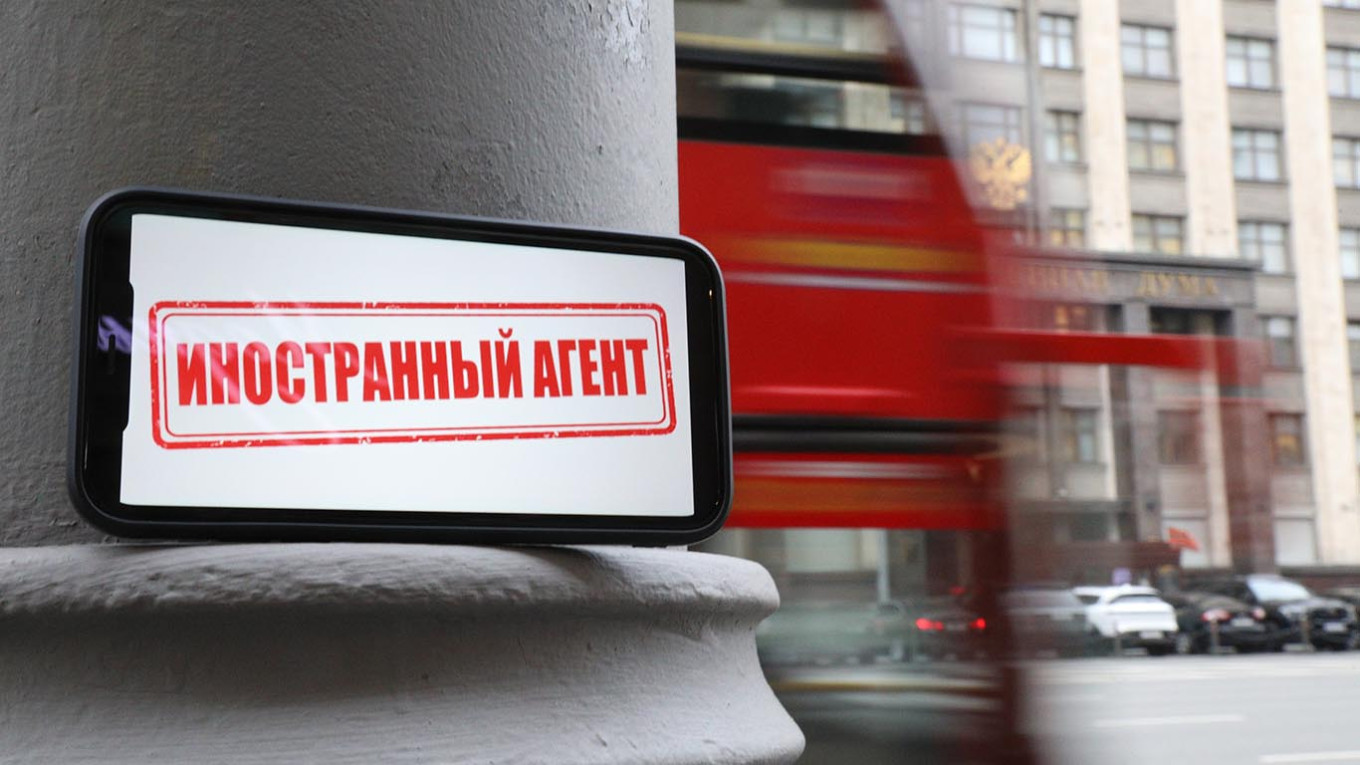Russia’s law on “foreign agents” has been tightened again, allowing for criminal prosecution after only a single administrative fine. Previously, a criminal case could be preceded by two administrative infringements. This is far from the first and probably not the last change to the notorious law — the tail of this cat is being cut off piece by piece.
The increasingly onerous requirements have led to the closure of many vital independent media organizations and NGOs, including Russia’s leading domestic violence support center, Nasiliu.net. “The 'foreign agent' law gradually deprived us of more than just resources,” said its founder, Anna Rivina.
“First, we were banned from holding events. Then, from engaging in educational activities. More and more people were afraid to approach us, more and more services refused to help, cutting off access to support for the victims. This circle around our future narrowed, narrowed, narrowed — until there was no longer any room for work.”
In September, Nasiliu.net was cut off from donations from Russia. The law’s growing powers increased pressure on the organization until it was finally strangled.
Laws against “foreign agents” appeared in Russian legislation at the end of 2012, still within the framework of the Law on Non-Profit Organizations. At that time, two criteria for foreign agents were formulated — receiving money from abroad and engaging in “political activity.” But this was interpreted so broadly that any public activity fell under it.
At first, being listed as a “foreign agent” was problematic, but many organizations still continued operating. “Agents” were obliged to preface every publication with a hideously written disclaimer warning about their status. They were also required to file quarterly reports on their activities and finances, especially their use of foreign funds. Legal entities became obligated to conduct an annual audit.
Much has changed since then — but nothing has got better. At first, “foreign agents” had to register themselves. When most refused to comply, the Justice Ministry took over. To this day, new names are added to the list almost every Friday.
Previously, “foreign agents” were divided into categories: legal entities, individuals, media outlets and unregistered associations. The database even specified which foreign country each agent allegedly served. Now, the list is unified and includes organizations, informal groups and private citizens alike.
In 2022, Russia adopted a new law — “On Control Over the Activities of Persons Under Foreign Influence.” Its latest tightening, introducing criminal liability after a single administrative offense, comes into force on Oct. 26, 2025. “Foreign influence” is defined so broadly here that it includes not only money and property but also any “assistance from abroad” or even attempts at “coercion, persuasion” or “other methods” of influence.”
These broad brushstrokes criteria make it possible to target virtually any dissenter, regardless of whether they are an individual or a group of people.
On the few international platforms where Russia has not yet been expelled, the “foreign agent” law has been consistently condemned. The United Nations has repeatedly called for its repeal, which is unsurprising given that the first organizations persecuted under the law were those cooperating with the UN. Their “offense” was submitting alternative reports to the UN Committee Against Torture before the legislation even existed. The Kremlin later applied the law retroactively.
The reaction of the Russian authorities to this criticism on international platforms is also unchanging: references to an allegedly analogous and even harsher American law and claiming that one can easily leave the register, while falsely asserting that the law merely requires “foreign agents” to inform the public of their status, while freely continuing their work inside Russia.
The flaws in these arguments have long been evident. There is nothing comparable to the U.S. Foreign Agents Registration Act; removal from Russia’s register almost always means an organization’s closure; and the notion that the law was simple to comply with is absurd.
In reality, Article 11 of the law, “Restrictions Associated With the Status of a Foreign Agent,” contains 22 provisions — all of which collectively strip the designated person or group of basic civil and political rights. They are banned from holding office at any level, from taking part in public councils, taking part in any work connected to elections, organizing public events, working with minors and teaching at public universities.
These restrictions are the law’s ideological core — aimed at silencing public expression, curbing civic participation and eliminating independent thought.
But there is also an economic dimension. The law’s limitations on “foreign agents” in environmental monitoring and oversight, for instance, serve the interests of extractive industries and their government allies. The inability of independent environmentalists to conduct expert reviews or public monitoring directly benefits polluters. It particularly harms Indigenous communities, whose lands, livelihoods and languages are being destroyed along with the ecosystems they depend on.
The law also imposes severe financial and property restrictions. Those labeled “foreign agents” are barred from receiving state or municipal grants, insuring funds or using simplified taxation. They are prohibited from participating in public procurement, and any income from property sales must be kept in special accounts fully controlled by banks and the state.
In effect, this means a ban on earning a living in Russia, on inheriting or disposing of property, and on conducting basic financial transactions. Fines — whether administrative for “violating the procedure of a foreign agent’s activity” or criminal for “evading obligations” — are draconian.
The “foreign agent” label is not the only mechanism of property confiscation. Persecution under “extremism” and “terrorism” articles has a similar effect, as it automatically places individuals on a special register of “extremists and terrorists,” often even before trial. To label a group as an “extremist association,” it is enough for just one member to have been convicted under Article 282.1 of the Criminal Code. The property of all members — including their sole homes and relatives’ assets — can then be seized by court order, despite the fact that collective punishment is illegal even under Russian law.
When defending the “foreign agent” law, Russian officials often focus on its supposed economic fairness. They claim that “agents” criticize Russia only to keep their foreign property or income. At the 2023 Eastern Economic Forum, President Vladimir Putin himself argued that dissidents are motivated by “material concerns,” claiming: “In order to keep everything, they are required to speak out, to criticize, to denounce … There are those who sincerely disagree with what the Russian state is doing. But, I repeat, no one prevents them from criticizing while being here. They chose to leave — that’s their decision.”
In reality, dissenters are pushed into exile through constant repression, economic strangulation, and the threat of prosecution — even in absentia.
From the beginning, the “foreign agent” label has never been neutral. Since 2012, it has served as a mark of shame, implying betrayal or espionage. It has evolved into a legal foundation for stripping entire groups of their rights.
Together with other repressive statutes — on “undesirable organizations,” “extremist associations” and “state treason” — it has formed a toxic cocktail that poisons the lives of those forced to flee Russia and threatens those who remain.
A Message from The Moscow Times:
Dear readers,
We are facing unprecedented challenges. Russia's Prosecutor General's Office has designated The Moscow Times as an "undesirable" organization, criminalizing our work and putting our staff at risk of prosecution. This follows our earlier unjust labeling as a "foreign agent."
These actions are direct attempts to silence independent journalism in Russia. The authorities claim our work "discredits the decisions of the Russian leadership." We see things differently: we strive to provide accurate, unbiased reporting on Russia.
We, the journalists of The Moscow Times, refuse to be silenced. But to continue our work, we need your help.
Your support, no matter how small, makes a world of difference. If you can, please support us monthly starting from just $2. It's quick to set up, and every contribution makes a significant impact.
By supporting The Moscow Times, you're defending open, independent journalism in the face of repression. Thank you for standing with us.
Remind me later.






